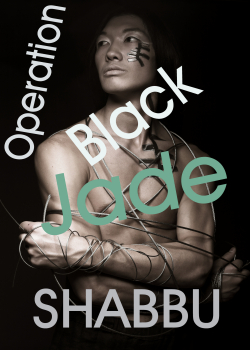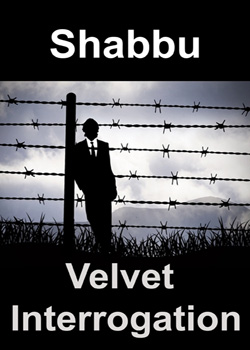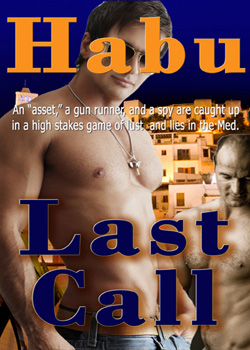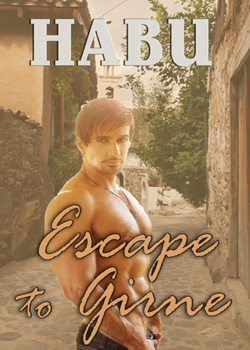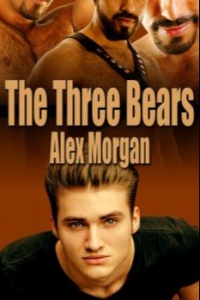Espionage and Murder, Terrorists and Betrayal in the Middle East.
Two hunky blonds play dangerous games in a U.S. embassy in this gay male novella of Middle East espionage and terrorism.
Two very similar-looking young, blond men, the first-assignment CIA technical support officer, Christ Carter, and the ambassador’s son, Sean Caldwell, have both arrived in an oil-rich Persian Gulf emirate. Both have been steeped in Muslim studies in their U.S. university studies and both are determined to take dangerous measures—and to prostitute themselves, as needed—to fulfill political objectives.
The emirate embassy seems isolated and insular, but looks prove deceiving as, in narratives by various characters, both of the young blonds and those around them—Arab royals, terrorist masterminds, American diplomats, spies, oil company executives, and even servants—become embroiled in a terrorist plot. A plot that has potentially explosive regional ramifications and more twists and turns than a corkscrew.
Characters become pitted against each other in a race with the devil, in both strategy and threat to life, that challenges the reader on just who is the devil.
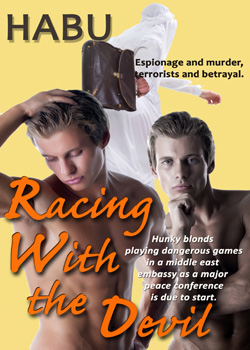
I had met Penny Haskell in Langley a couple of times during my abbreviated training for this post, where I was to engage in covert tech support while pretending to be a State Department logistics officer. Haskell was the chief of station in this emirate—the top American spy in the country. Each time we had briefly met and spoken at CIA Headquarters across the Potomac River from Washington, D.C., Haskell had been abrupt and cold. She was always seemingly needing to be somewhere else in the next ten minutes and dealing with me only on sufferance—although it had always been a case of me sitting and cooling my heels waiting for an appointment with her that I hadn’t been the one to schedule.
Today was no different—other than that she’d been waiting for me, and wasn’t at all pleased by that fact. At my obvious confusion that I had been met at the nearly deserted airport in this postage-stamp sized emirate on the Persian Gulf by the COS herself rather than by some embassy foreign national, she told me, in clipped tones, that the COS always met her incoming staff members. But she went on to say that my plane had been late and I’d come out of customs late—and she managed to say it in a way the suggested I personally was responsible for the delays—and that she was expected at an event. There wasn’t time to take me to my hotel or the embassy; I’d have to go to the event with her.
Wonderful, I thought. Just what I wanted to do, having traveled a quarter of the distance around the globe without sleep—although I could fall down in a stupor now—with the makings of a hangover and nearly drooping with heat exhaustion.
“Where?” I started to say.
“We’re going to the horse races,” Haskell said.
God, yes, I thought. Just the thing for the condition I’m in—outside at the rails in the heat of the desert day with horses kicking dust into my face. Lovely.
The horse races turned out to be at a fancy track across the city, the emirate’s capital being a compact collection of impossibly tall and wildly shaped skyscrapers set on obviously manmade islands poking out into a harbor on the shores of the Gulf. Haskell told me that, from the air, the whole complex fanned out in the shape of a palm tree. I believed her. She also told me that the city was only for the wealthy rulers—that the lower classes lived in slums hidden on the other side of manmade hills surrounding the central city. I believed that too. I was so tired and hung over I was willing to believe anything she said.
I balked a bit when she told me that the horse race we were going to would feature this year’s winners of the Kentucky Derby and Belmont racing each other—the horses having been shipped here just for a race that would last less than eight minutes. But it turns out she was right about that too. Mercifully, though, the track was too fancy for us to be standing at the rails. We were in some sort of large, air-conditioned skybox overlooking the track. I would have thought that there would be quite a crowd out to see such a race, but it was only those of us in the skybox.
And it was here where I saw him and he perked up and gave me a speculative full-body inspection with his hooded eyes when Penny Haskell introduced me to his father, Prince Sayeed el-Basir, the holder of every vestige of functional power in this small emirate. Haskell emphasized in the terse introduction that I had been an intercollegiate tennis champion. That’s when Amir el-Basir moved out of his father’s shadow and asked her to repeat that.
Within my first hour of arriving in my new country of assignment in the Persian Gulf, I not only got to see Belmont whip the Kentucky Derby in a brief flash, but I also was engaged to play tennis with a prince’s son at the royal palace.
It was only as I was being driven to my hotel in Penny Haskell’s embassy car that she told me that she had preplanned all of this—that she wanted me to get close to and to cultivate the prince’s son and that she had known that my tennis talents would be the station’s entrée to that. My life of espionage had already begun.

